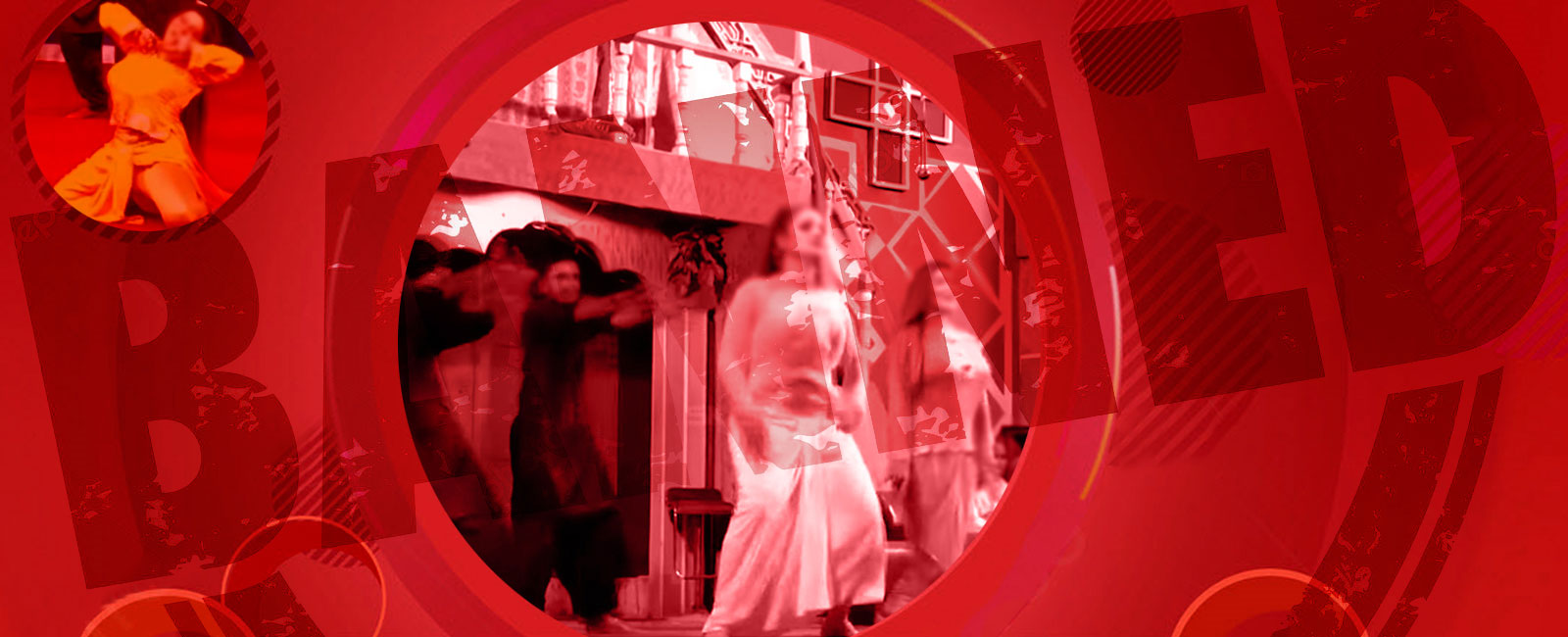Dirty dancing? In Punjab theatres, men return to work but women face govt ban
In last few weeks, over dozen female actors received notices accusing them of promoting “vulgarity” and performing “racy” dances

Last month in a late-night raid, a police contingent barged into Lahore’s Tamaseel Theatre and sealed the premises. During the operation, the owner of the theatre alleged that the police mishandled his staff, seized his equipment and even took with them the actors’ tissue boxes and mosquito repellents.
“Who gave the police permission?” Qaiser Sana Ullah Khan, the owner of Tamaseel Theatre, said in a charged press conference on August 26 in Lahore, “Look at my hand. I was injured that day.”
During the media talk, Khan repeatedly asked Punjab’s interim government officials, Chief Minister Mohsin Naqvi and Information Minister Amir Mir, why his theatre was forcefully closed.
On the night of the raid, Lahore’s Commissioner Muhammad Ali Randhawa told the media that the theatre had been padlocked for featuring an “obscene mujra”.
“We will not allow vulgar dialogues and mujras in theatres,” the commissioner said, “It is against our religion and culture.”
In the following week, the raids continued until all 14 commercial theatres in the Lahore division were sealed shut for allegedly promoting “dirty” theatre.
A theatre owner told Geo.tv that over 4,000 people were affected by the shutdown at a time when Pakistan was facing an unprecedented economic crisis and where food inflation was at more than 38% in August.
Some of the hounded theatre owners took the matter to the Lahore High Court (LHC).
On September 8, the court ordered for theatres to be de-sealed and directed the government to ensure owners are provided an adequate time to file a reply before action is taken.
Since then, all 14 cinemas have reopened.
Ali Nawaz Malik, the secretary of the information department in Punjab, told Geo.tv that the court has provided “interim relief” to the theatres in the province, and they will remain open until a final verdict or till the stay order is vacated.
As of now, for the men — the theatre owners, the scriptwriters, the producers, the male actors — business is back to normal. But the same cannot be said for the women — the female actors — on whom the full might and fury of the state has unleashed.
'Women are an easy target'
In the last few weeks, over a dozen female actors have received notices accusing them of promoting “vulgarity” and performing “racy” dances. Of these, four have been banned already in Punjab and more could be added to the list in the coming days, fear theatre owners.
Performer Nayab Khan has been banned for 90 days, Jia Butt for 30 days, Ayan Akhtar for 21 days and Saba Gul for 30 days.
An order issued by the Punjab government’s home department on September 7, states that Gul had “crossed all bounds of humanities during her dance performance (sic)” and was found being “involved in vulgar activities”.
Meanwhile, Nayab Khan, who faces a ban of three months, was also accused of “displaying vulgarity” in an order she received on September 7.
Khan told Geo.tv that when the Additional Secretary (police) called her to his office on September 5, she immediately apologised for dancing on an item number, although she did not see why her performance had invited the ire of the government.
“He [the Additional Secretary] was very rude with me,” she said, “He did not even listen to me. This [government] has no respect for us. They are sealing our theatres, raiding them, forcing us to apologise.”
Khan further asks why only women are being banned, and not the men who also work in the same stage plays with her.
“We act according to the scripts given to us by the writers and producers,” she adds, “But of course, women are an easy target. They [the government] know we can’t do anything.”
For now, Khan has gone to court against the ban. As she awaits court orders, she said she is unsure of how she will be managed for the next three months while out of a job.
“I don’t have parents you know,” she said, “Lot of people depend on me. I support [financially] my aunt, two uncles, my brother and my sister.”
The female actors have also received scant support from the men in the industry.
Owners of theatre halls have distanced themselves from the female actors, and have in press conferences, and media interviews and while speaking to Geo.tv, repeatedly called for the women “who perform such indecent dances” to be banned.
“Are women alone in these plays?” asked Butt, another banned performer, while talking to Geo.tv. “What about the vulgar jokes which men make on stage about other women? No one takes notice of that.”
Butt adds that the men in her industry are trying to protect themselves by throwing the women under the bus. “They want to say we are clean and only these women are [dirty].”
The actor added that she was just as uncertain about what she will do during the ban, in terms of money.
“There is a lot of inflation and I have three to four households to support,” she explained.
A vague, British-era law
The Dramatic Performances Act, 1876, empowers the government to prohibit dramatic performances which are “scandalous”, “defamatory”, “seditious” and/or “obscene”.
It further adds that if the provincial government is of the opinion that a play performed in a public space is scandalous or defamatory or is “likely to excite the feelings of disaffection to the government” or “likely to deprave and corrupt people” the magistrate has the power to prohibit the performance, as well as authorise the police to enter, even by force, any premises, arrest all persons and seize any articles found.
There is no definition in the colonial-era law of what constitutes “scandalous” or “obscene”.
Muhammad Yousaf, who owns the Mehfil Hall in Lahore, a commercial theatre, told Geo.tv over the phone that there are no clear guidelines on what is considered “vulgar” by the authorities.
“These people who censor us come and say don’t show mujras,” Yousaf adds, “But what is a mujra for you? Naseebo Lal’s songs are mujra? At least give us a clear criteria.”
The man behind the crackdown: Amir Mir
The man spearheading the crackdown seems to be Amir Mir, the caretaker information minister.
At the height of the crackdown last month, Mir told reporters that the theatres were shut down as the owners had promised not to “spread vulgarity through women dancers”, yet they did.
He further claimed that the Punjab government wants to control the “growing trend of obscenity” in stage shows.
Even before Mir was appointed a minister in the caretaker cabinet in January, he seemed to have taken a personal interest in the matter. As early as last year, his YouTube channel, Googly News, had posted videos decrying the alleged downfall of Punjabi theatre.
A video posted in December was titled: “Commercialism nai theater koh fohash dancers ka adda kaisay banaya?” (How did commercialism make theatre a place for vulgarity?)
After a press conference by a group of artists and producers on August 26 criticising the government, and Mir in particular, Googly News published a video titled: “Stage Say Fahashi Ka Khatima, Minister Information Amir Mir Nai Artists Kai Dil Jeet Liyay” (At end to vulgarity on stage, minister information Amir Mir has won the hearts of artists).
In the video, a few theatre artists can be heard praising Mir for acting promptly to end vulgarity and then proceed to give him a standing ovation.
Mir has insisted in various media interviews that the theatres were sealed for violating the Dramatic Performances Act, 1876, and adds that the interim Punjab government has decided to amend the Act to ban “vulgar” dances in plays.
Amir Mir did not respond to Geo.tv’s requests for comments.
However, when Ali Nawaz Malik, Punjab's secretary of information, was asked how a caretaker government could amend legislation, he said that the necessary amendment would be introduced after an ordinance is promulgated, which would take three weeks.
Malik also defended the lack of clarity in the 1876 law about what constitutes obscene or vulgar.
“Vulgarity has not been defined [in the law] but it has been sufficiently implied in the Act,” he said in a written statement, refusing to elaborate any further.




